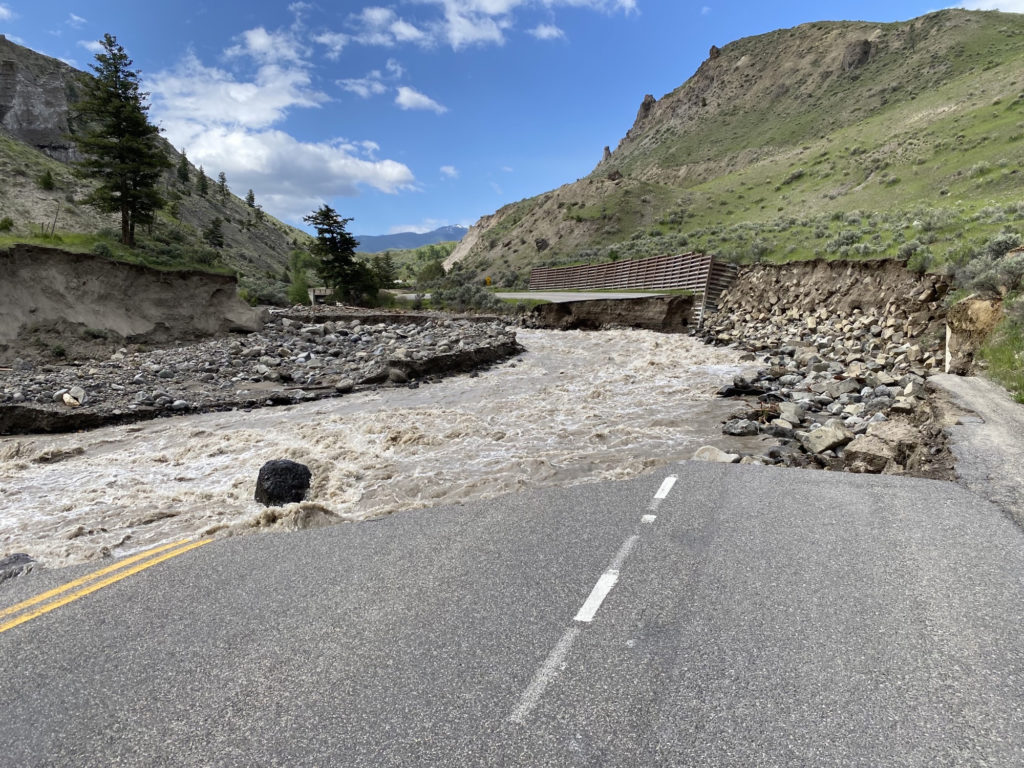Biden Administration Announces New PROTECT Formula Program, $7.3 Billion from Bipartisan Infrastructure Law to Help Communities Build Resilient Infrastructure

In an ongoing effort to combat the effects of climate change and address the growing costs of extreme weather events negatively impacting communities, the U.S. Department of Transportation’s Federal Highway Administration (FHWA) today announced new guidance and $7.3 billion in formula funding to help states and communities better prepare for and respond to extreme weather events like wildfires, flooding, and extreme heat. This is a first-of-its-kind program, made possible by President Biden’s Bipartisan Infrastructure Law.
“In every part of the country, climate change is impacting roads, bridges, and rail lines that Americans rely on–endangering homes, lives and livelihoods in the process,” said U.S. Transportation Secretary Pete Buttigieg. “Using funds from President Biden’s Bipartisan Infrastructure Law, we’re launching this unprecedented effort to help communities protect their transportation infrastructure from extreme weather and improve routes that first responders and firefighters need during disasters.”
The new Promoting Resilient Operations for Transformative, Efficient, and Cost-Saving Transportation (PROTECT) Formula Program funding is available to states over five years to make transportation infrastructure more resilient to future weather events and other natural disasters by focusing on resilience planning, making resilience improvements to existing transportation assets and evacuation routes, and addressing at-risk highway infrastructure. In general, eligible projects include highway and transit projects, bicycle and pedestrian facilities, and port facilities including those that help improve evacuations or disaster relief. States are encouraged to work with regional and local partner organizations to prioritize transportation and emergency response improvements, as well as address vulnerabilities.
“We see the effects of climate change and extreme weather play out across the country every week, with extreme temperatures and rainfall and resulting flooding and wildfires that damage and in some cases destroy roads, bridges and other transportation infrastructure,” said Acting Federal Highway Administrator Stephanie Pollack. “The PROTECT Formula Program will help make transportation infrastructure more resilient to current and future weather events and at the same time make communities safer during these events.”
Eligible resilience improvements can involve adapting existing transportation infrastructure or new construction to keep communities safe by bolstering infrastructure’s ability to withstand extreme weather events and other physical hazards that are becoming more common and intense. Eligible project choices may include the use of natural or green infrastructure to buffer future storm surges and provide flood protection, as well as aquatic ecosystem restoration. PROTECT projects can also help improve the resilience of transportation networks that serve traditionally underserved and underrepresented communities, particularly during natural disasters and evacuations.
PROTECT builds on other USDOT actions to address the climate crisis and that support the Biden Administration’s whole-of-government approach to reducing greenhouse gas pollution by 2030. Other USDOT actions include a proposed rule for states and municipalities to track and reduce greenhouse gas emissions; the Carbon Reduction Program, which will provide $6.4 billion in formula funding to states and local governments to develop carbon reduction strategies; and the National Electric Vehicle Infrastructure (NEVI) Formula Program, which will provide $5 billion to states to build out a national electric vehicle charging network, an important step towards making electric vehicle charging accessible to all Americans.
For more information about the new PROTECT Formula Program and guidance released today, please see FHWA’s website and fact sheet. The five-year funding table for total estimated PROTECT state-by-state funding for Fiscal Years 2022-2026 is available here. The Bipartisan Infrastructure Law established both the PROTECT Formula and Discretionary Grant Programs. The guidance being released today focuses on the PROTECT Formula Program. A Notice of Funding Opportunity for the PROTECT Discretionary Grant Program will be released later this year.








